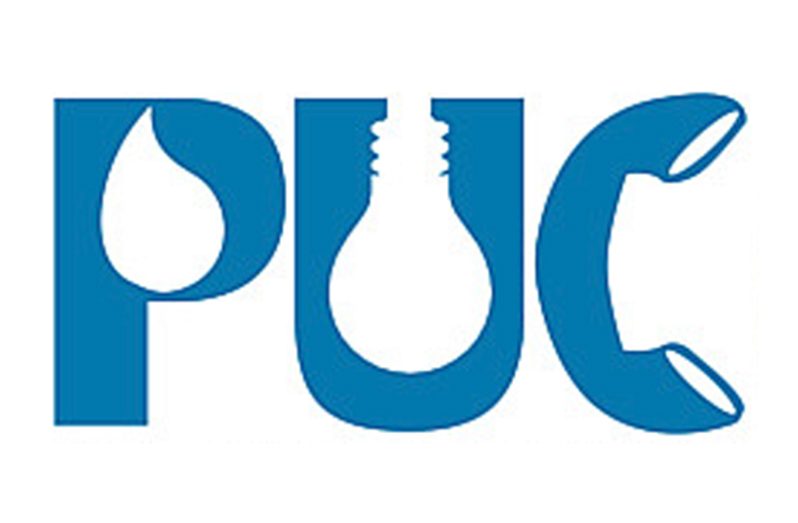— PUC 2018-2019 report finds
THE Public Utilities Commission (PUC), in its 2018-2019 report, has noted that, while service providers, namely the Guyana Telephone and Telegraph Company (GTT), the Guyana Power and Light Inc (GPL) and the Guyana Water Inc (GWI) have seen an increase in demand for their services, complaints against these companies have also skyrocketed.
The PUC is a body corporate, established in accordance with the Public Utilities Commission Act which governs every aspect of regulating the electricity, water and telecoms sectors in Guyana. Its mission is to ensure that regulated utilities offer efficient service to consumers, at a reasonable cost, without compromising their financial and operational integrity. The commission functions in a regulatory, investigatory and advisory enforcement capacity to conduct investigations into the standards of service of the utilities under its purview, among other things.
For the stated period, the commission received and processed some 715 complaints from consumers. With the exception of Digicel, the complaints received for all utility service providers increased during the period for 2019, when compared to the previous reporting period for 2018.
The commission, in 2019, had received some 563 complaints, a 27 per cent increase from 2018. Complaints against GTT increased by 52 per cent from 239 in 2018 to 363 in 2019; complaints filed against GWI increased by some 25 per cent from 69 in 2018 to 86 in 2019; and those against GPL increased by six per cent from 248 in 2018 to 262 in 2019. Noteworthy, the complaints received against Digicel were reduced by 75 per cent for the year 2019.
LANDLINE SERVICE
“Complaints filed against GTT for technical issues with respect to the landline service represents 37 per cent of all complaints received; 15 per cent represents tampering issues with the GPL’s service; eight per cent for billing issues against GPL; seven per cent for technical issues against GPL; seven per cent for billing issues against GTT and the remaining one per cent for issues regarding change of tenancy at GPL and other miscellaneous issues,” the report noted.
The PUC reports that the bulk of the complaints were received by its Berbice office consequent to the commission’s public awareness drive in the county; as complaints received by the Georgetown office were reduced by 10 per cent, while complaints received by the Berbice office increased by 102 per cent.
“The bulk of the increase was attributed to GTT consumers in East and West Canje, East Bank and Corentyne Berbice,” the report noted. In relation to GWI, it was noted that “the bulk of this increase was derived from consumers in New Amsterdam, Berbice.” Approximately 81 per cent of all complaints received stemmed from Regions Four and Six.
The report highlighted that in the telecoms sector, Guyana’s reliance on mobile data continued to grow exponentially in 2019, with the sales for mobile data for both GTT and Digicel increasing by 57 per cent, while the combined sales of megabytes of the two service providers increased by approximately 54 per cent over the previous year, from approximately 3.7 billion megabytes to 5.8 billion megabytes.
When compared to 2018, the combined number of active mobile sets for GTT and Digicel increased by approximately 2.5 per cent at the end of 2019. On the other hand, the number of active landline services continue to decline on a year by year basis, declining by approximately six per cent for the stated period.
SUBSCRIBERS FELL
“The number of subscribers fell from 154,057 to 122,890, representing a decrease of 20 per cent over the five-year period. The Commission is of the view that the landline quality of service, migration and affordability may have been contributing factors to this decline,” the report noted.
With the widespread availability of apps such as WhatsApp, Messenger and Skype, GTT international operations have taken a hit, as inbound minutes declined by 20 per cent and outbound minutes fell by 24 per cent in 2019 when compared to 2018.
In terms of electricity, GPL saw an increase in residential and non-residential active accounts when compared to 2018; the company also recorded a 0.1 per cent decrease of system losses (the generated electricity for which no revenue is received by the company).
“The price of fuel and the reluctance of the company to implement the fuel surcharge mechanism when prices increase above the three per cent threshold may have hindered some of the company’s developmental programmes; however, to its credit, the company has reduced its system losses from a high of 40 per cent in 2005 to its current 28 per cent,” the report noted.
In the water sector, the production of water for the GWI stood at 108,000,000 cubic meters in August 2019, and it was expected to achieve the mark of 156,000,000 cubic meters by the December 31, 2019. For the period of 2019, GWI reported an increase in collections from consumers as collections increased by approximately 29 per cent when compared to 2018.
It is expected that the water and sewage service meets the World Health Organisation (WHO) water standards. However, the report noted that GWI has shown that its many treatment facilities continue to be affected by abnormal levels of pH, turbidity, iron and aluminum when compared to the WHO levels.
Of the 715 complaints received by the Commission, 435 or some 61 per cent were resolved. The PUC reported that of the 435 complaints, 71 per cent were resolved in the complainants’ favour, while 21 per cent were resolved in the utilities’ favour. The Commission said with 61 per cent of complaints being resolved for the year, 2019 was a “remarkable year” for the Commission.



.jpg)











